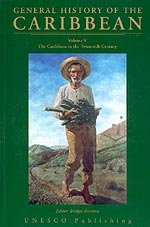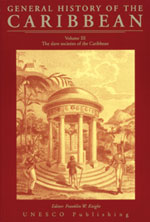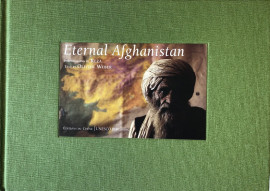DL Services SPRL
Rue Vanderborght 24
1081 Brussels Belgium
info@dl-servi.com
General History of the Caribbean Volume V: The Caribbean in the Twentieth Century
Disponible
Volume V: The Caribbean in the Twentieth Century
This six-volume UNESCO History of the Caribbean attempts to integrate the historical experience of its peoples and societies from the earliest times to the present.
Editor: Bridget Brereton
Co-editors: Teresita Martínez-Vergne, René A. Römer and Blanca G. Silvestrini
Multiple History series
Book, 788 pages, illustrations, figures, maps, tables, plates, biblio., index
Format: 23.5 x 15.7 cm (paperback)
2004
Génération de facture pro forma disponible dans le panier.
This six-volume UNESCO History of the Caribbean attempts to integrate the historical experience of its peoples and societies from the earliest times to the present. The region it surveys includes the coasts lapped by the Caribbean Sea wherever an historical explanation of activities of the societies in the islands compels an extension of the boundary to the south or west. The work provides a comprehensive history of the Caribbean, centred on its people and its landscape, written as much as was possible by Caribbean historians. It gives an account of what was common to all as well as what was peculiar to some, and affirms the cultural identity of the region.
The major objective of Volume V of the UNESCO General History of the Caribbean is to provide an account and interpretation of the historical development of the region from around 1930 to the end of the century.
Within its compass are the ‘turbulent thirties’, including the Cuban Revolution of 1933 and the labour protests in the British Caribbean of 1934–39; the strategic position occupied by the region during the Second World War; the development of proletarian movements and trade unions and their links with political parties; decolonization; political evolution in the French and Dutch Caribbean, and the ‘turn to the left’ made in the 1970s by a number of Anglophone Caribbean countries, notably Grenada. Also examined are the Castro Revolution and its aftermath to the 1990s; ethnicity and race consciousness and their effects in uniting or dividing communities and nations; international relations and regional co-operation; changes in social and demographic structures (including the role and status of women); education, migration and urbanization; and the beliefs and cultural experiences which underpin Caribbean identity.
The final chapter provides an overall survey of changes in the quality of life in the Caribbean during the twentieth century.


















